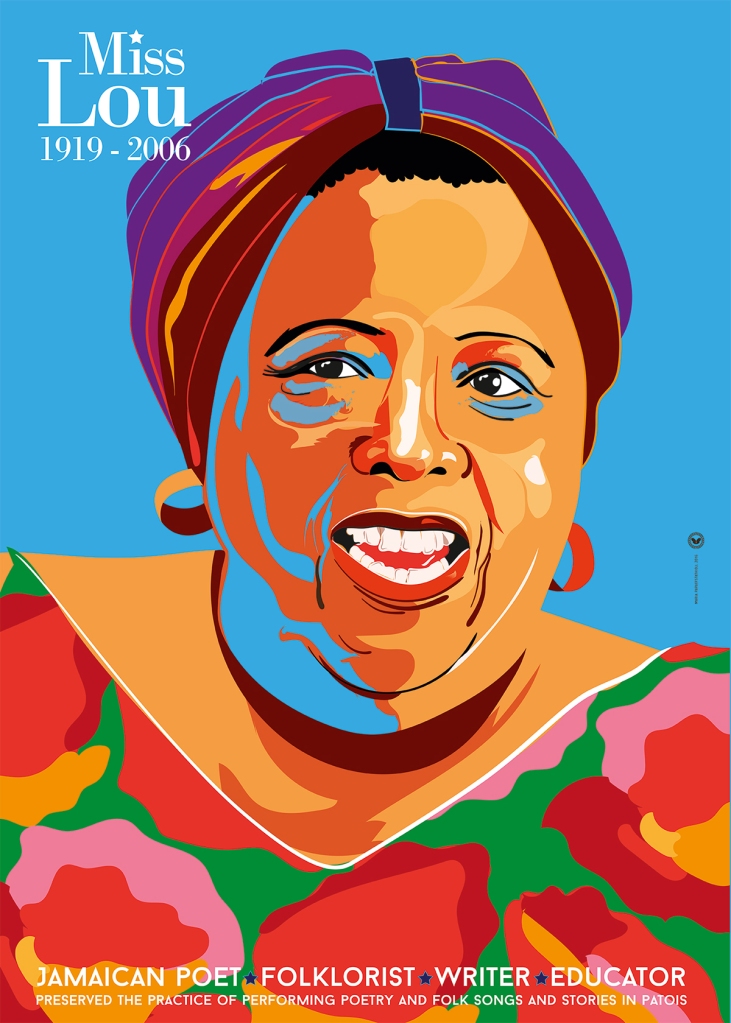Louise Bennett, popularly known by her stage name ‘Miss Lou’, went to England in 1945 to study acting at the Royal Academy of Dramatic Art (RADA). She had been awarded a scholarship by the British Council. According to Wikipedia, Miss Lou was the first black person to attend RADA, which was established in 1904. Trust a Jamaican to be the force of integration!
On June 21, 1948, three years after Miss Lou arrived in the UK, His Majesty’s Troopship Empire Windrush brought 802 passengers from the Caribbean. Despite all the hype, this was not the first ship to bring passengers from the region in the 1940s. The UK National Archives website confirms that in March 1947, the SS Ormonde docked in Liverpool with 241 passengers.
The website reports that, “The list showed a diverse range of skills and professions among the passengers, who included carpenters, engineers, plumbers and more.” But racism prevented many from finding appropriate jobs. They were forced to settle for what they could get: menial labour. In December 1947, the Almanzora docked in Southampton with 200 passengers. Many of them had served in the Royal Air Force during the second European war. Also highly skilled, they suffered the same fate as earlier immigrants.
“COLONIZATION IN REVERSE”
To mark the 75th anniversary of the arrival of Caribbean migrants in the UK on the Empire Windrush, London Transport’s “Poems on the Underground” programme selected six poets, among them Miss Lou. The first four verses of her poem “Colonization in Reverse” were chosen. Miss Lou gleefully celebrates the transforming power of Jamaican culture as it plants itself on British soil:
“Wat a joyful news, Miss Mattie,
I feel like me heart gwine burs’
Jamaica people colonizin
Englan in reverse.”
Migrating from the “margins” of Empire to the imperial “centre,” Jamaicans destabilised the colonial imbalance of power:
“What a islan! What a people!
Man an woman, old an young
Jusa pack dem bag an baggage
An tun history upside dung!”
The reverse colonization of England is expressed in the widespread adoption of the Jamaican language. In 2011, the notorious historian David Starkey made a now-infamous admission on BBC2’s Newsnight programme: “Black and white, boy and girl, operate in this language together. This language, which is wholly false, which is this Jamaican patois that’s been intruded in England. And this is why so many of us have this sense of literally a foreign country.”
Turning the native into an alien in his/her own country was one of the deliberate consequences of British imperialism across the globe. Reverse colonization through language most appropriately makes bigots like Starkey aliens in England. More than a decade after Starkey’s vitriolic outburst, the supposedly “wholly false” language of youth culture is now acknowledged as an authentic expression of the heritage of unwelcome intruders who have claimed the right to settle in the ‘motherland.’ The Jamaican language has gone mainstream.
THE LANGUAGE OF FOOD
Two other Jamaican poets are featured in the “Poems on the Underground” Windrush edition: James Berry and Kei Miller. Then, there’s Benjamin Zephaniah who was born in England to a Jamaican mother and a Barbadian father. John Agard and Grace Nichols, both born in Guyana, are also celebrated. Kei Miller’s poem, “The only thing far away,” gives a pungent account of colonization in reverse, expressed in the language of food:
“In this country, Jamaica is not quite as far
as you might think. Walking through Peckham
in London, West Moss Road in Manchester,
you pass green and yellow shops
where tie-headwomen bargain over the price
of dasheen.”
Miller extends the process of reverse colonization beyond the Caribbean:
“And beside Jamaica is Spain
selling large yellow peppers, lemon to squeeze
onto chicken. Beside Spain is Pakistan, then Egypt,
Singapore, the world . . . here, strangers build home
Together, flood the ports with curry and papayas
in Peckham and on Moss Road, the place smells
of more than just patty and tandoori. It smells like
Mumbai, like Castries, like Princess Street, Jamaica.
Sometimes in this country, the only thing far away
is this country.”
Similarly, Grace Nichols reclaims the “vernacular flavoured names” in the alien markets of the UK in her poem “Bourda”: “Not Aubergine but Balanjay/ Not Spinach but Calaloo.”
PURE FANTASY
Benjamin Zephaniah’s “The London Breed” confirms another form of colonization in reverse – the music of the Caribbean: “I love dis great polluted place/ Where pop stars come to live their dreams.” Reggae, lovers’ rock, dancehall, calypso, soca, grime, jungle have become the sounds of the UK. The calypsonian Lord Kitchener who arrived on the Empire Windrush, sang “London is the place for me” as he disembarked. He had confidently composed the calypso on board. It was pure fantasy: “The English people are very much sociable.” And he gave his address as Hampton Court. Despite delusion, music was a comfort to Caribbean migrants as they came to terms with systemic racism.
James Berry’s “Sea-Song One” is an ironic reminder of the optimism that took Caribbean migrants to the UK:
“Come on
Seawash of travel
Expose new layers of skin
Come on calm voice of sea
Come and settle on land
Sea’s tumble wash
Change our rags for riches”
John Agard’s “Windrush Child” evokes both the past and the future:
“Windrush child
your Windrush mum and dad
think of storytime yard
and mango mornings
and new beginnings
doors closing and opening”
These Windrush poems tell a complex story of reverse colonization. For Caribbean migrants, it meant both loss and recovery. For natives, it was a distinctive opportunity to learn a new language of empathy. That’s a lesson some simply could not understand.





